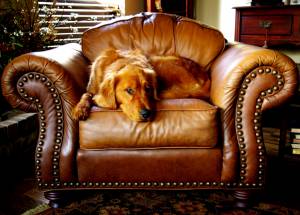
Have you ever observed your dog during a nap and noticed them twitching, wagging their tail, or even softly growling? It’s a common occurrence, and while it may seem puzzling, there are several reasons why dogs display this behavior during sleep. Much like humans, dogs go through different sleep stages, including REM (rapid eye movement) sleep, which is when most dreaming occurs. This stage is characterized by increased brain activity, and it’s during this time that barking and other movements may occur.
One possible explanation for why dogs bark in their sleep is that they are simply acting out their dreams. Researchers believe that during REM sleep, dogs may experience dream-like states similar to humans. These dreams could be linked to their daily activities, experiences, or even their instincts. Just as we might dream of running, flying, or encountering strange scenarios, dogs may dream about chasing a squirrel, playing with a favorite toy, or engaging in activities that are familiar to them.
Another reason for this behavior could be rooted in a dog’s natural instincts. Dogs are descendants of wolves, and while domestication has significantly changed their behavior, many of their primal instincts remain. In the wild, wolves communicate through howling and barking, and this communication extends to their dreams as well. When your dog barks in their sleep, they may be responding to an imagined threat or trying to signal their presence, much like their wild ancestors would have done.
It’s important to note that not all barking during sleep is related to dreams or instincts. In some cases, dogs may vocalize during sleep due to physical discomfort or medical issues. Pain, discomfort, or even conditions like canine cognitive dysfunction (similar to Alzheimer’s disease in humans) could lead to vocalization during sleep. If you notice a sudden change in your dog’s sleep behavior, such as increased vocalization or restlessness, it’s essential to consult with a veterinarian to rule out any potential health concerns.
So, the next time you catch your furry companion barking or whimpering in their sleep, remember that it’s likely a natural part of their sleep cycle. Whether they’re chasing rabbits in dreamland or simply expressing their instincts, these sleepy vocalizations offer a glimpse into the rich inner world of our beloved canine friends. Understanding and appreciating these behaviors can deepen the bond we share with our furry companions, reminding us of the fascinating connection we have with our loyal and expressive four-legged friends.






